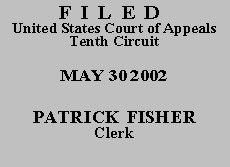

| FRANCIS WILL COBLEY,
Petitioner - Appellant, v. MARTY SIRMONS, Warden, Respondent - Appellee. |
|
Francis Will Cobley appeals from the district court's denial of his petition for habeas corpus relief, filed pursuant to 28 U.S.C. § 2254. He also seeks leave to proceed on appeal without prepayment of costs or fees; that request is granted.
Under the provisions of § 2253(c), appellant must obtain a certificate of appealability (COA) before this court may consider the merits of his appeal. See Slack v. McDaniel, 529 U.S. 473, 478 (2000). The district court denied appellant COA; he has reurged his request for COA here. Before COA can issue, appellant must make "a substantial showing of the denial of a constitutional right." 28 U.S.C. § 2253(c)(2). To meet this standard, he must demonstrate that "reasonable jurists would find the district court's assessment of the constitutional claims debatable or wrong." Slack, 529 U.S. at 484.
Appellant raises three issue in his brief on appeal: judicial misconduct based on a conflict of interest claim, prosecutorial misconduct, and failure to give an accomplice jury instruction. All of these issues were considered and rejected by the district court on various grounds. Construing appellant's pro se pleadings liberally, see Cummings v. Evans, 161 F.3d 610, 613 (10th Cir. 1998), and after careful review of the record on appeal in light of applicable law and standards, we conclude that, for substantially the same reasons relied on by the district court in denying habeas relief, petitioner has not met the standards for issuance of COA. In particular, we note that although there is evidence that Judge Gabbard presided in some direct criminal appeals, the written decision in appellant's direct appeal indicates that Judge Gabbard was not a participant in the decision. See rec., vol. I, doc. 9, ex. C. at 2. Petitioner's request for COA is DENIED and this appeal is DISMISSED.
Entered for the Court
Circuit Judge
*. This order and judgment is not binding precedent, except under the doctrines of law of the case, res judicata, and collateral estoppel. The court generally disfavors the citation of orders and judgments; nevertheless, an order and judgment may be cited under the terms and conditions of 10th Cir. R. 36.3.